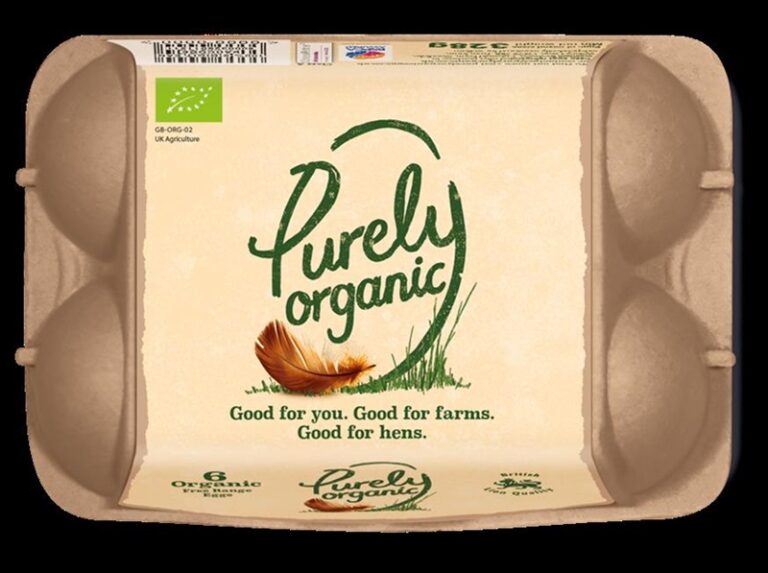New egg brand Purely Organic, the first national organic egg brand from Noble Foods has now launched a 10 pack at Tesco stores nationwide and online, tapping into the growing consumer demand for organic produce and trend towards larger egg pack sizes. Purely Organic has a small-scale, sustainable philosophy that is good for consumers, good for hens and good for the environment.
Organic is the second fastest growing egg type and is now valued at £67.4m in the UK after sales surged 13.1% in terms of value in the last year[1]. This growth is driven by consumers striving for healthier lifestyles and paying ever greater attention to the provenance of their food. Purely Organic hopes to further support the growth of this segment, as shoppers continue to trade up for organic products.
Purely Organic is a collection of six family run farms. The hens forage amongst fruit trees and wildflowers which offer naturally enriched nutrients for the hens and a friendly environment for bees and insects. All feed is sourced from their own singular organic mill ensuring traceability.
With consumer awareness of environmental issues such as packaging at an all-time high, Purely Organic is also the first brand in the UK to display the Climate Partner logo. This means the pulp packaging is carbon neutral and that the production of the boxes will offset the emissions generated by production processes and transport. The boxes were developed by Hartmann, the leading specialist in moulded fibre packaging.
Purely Organic is endorsed by British Lion, Freedom Food and Organic Farmers and Growers and is currently available in Nisa stores nationwide, with Amazon Fresh and now Tesco nationwide and online – supplied by Noble Foods. Purely Organic has an RSP of £2.10 for six eggs and £2.80 for ten eggs.
David Tromans of Towcester Farm, one of the six Purely Organic Farms said: “To be an organic farmer takes real dedication and passion. We are always looking for ways to improve hen welfare and give back to the environment, meaning our eggs are good for the consumer, good for farms, and good for hens.”


